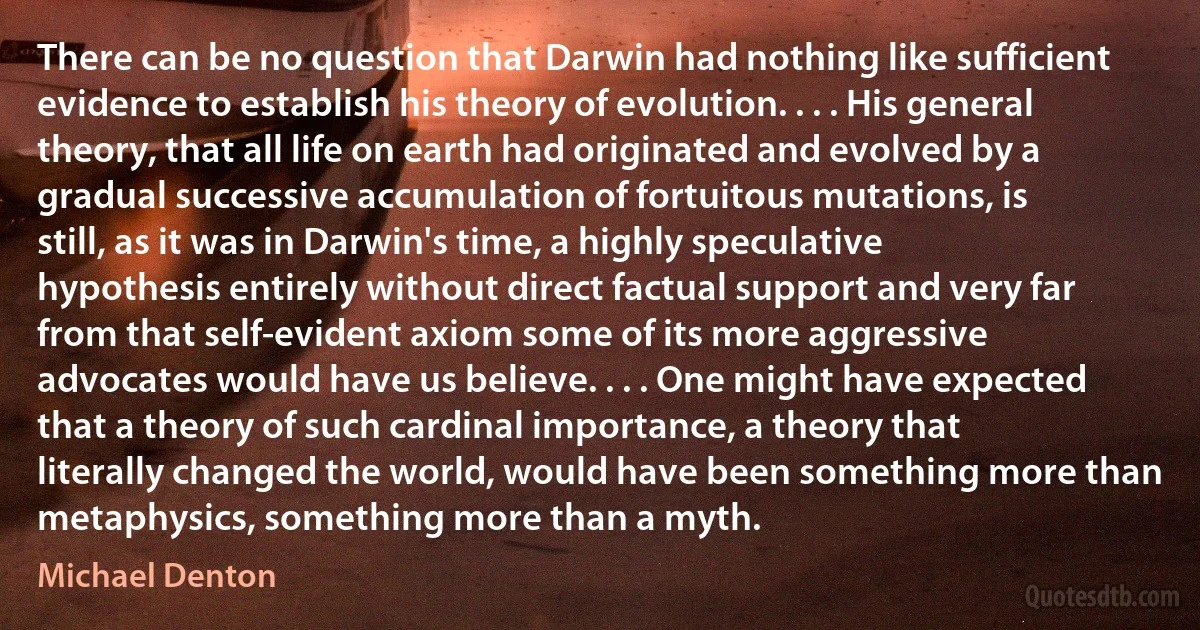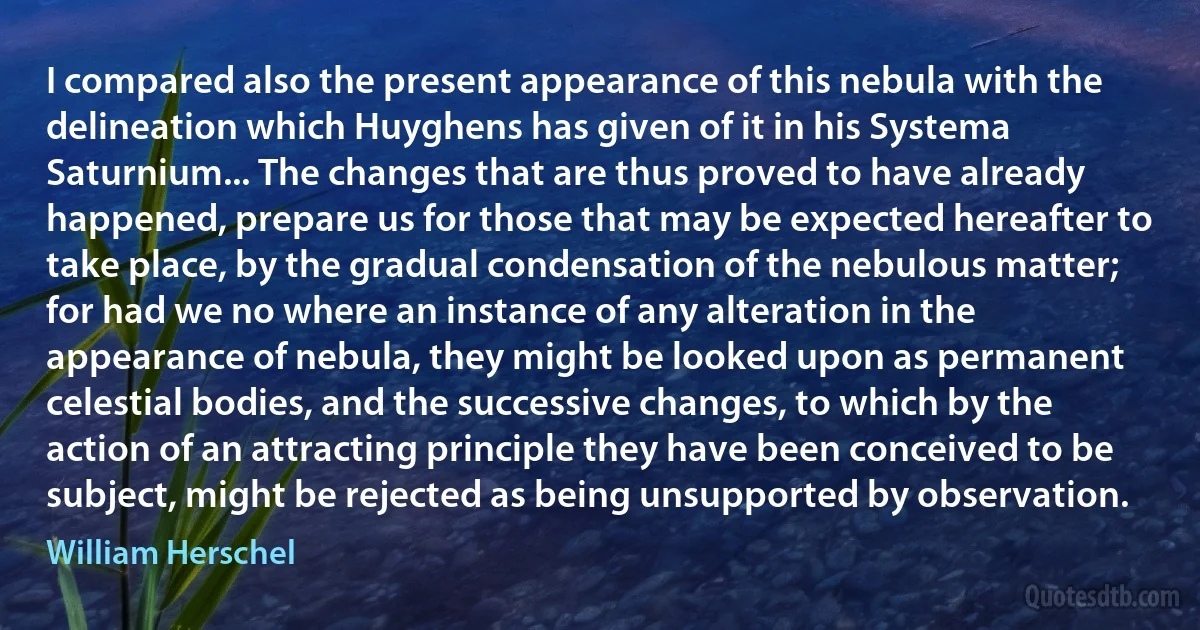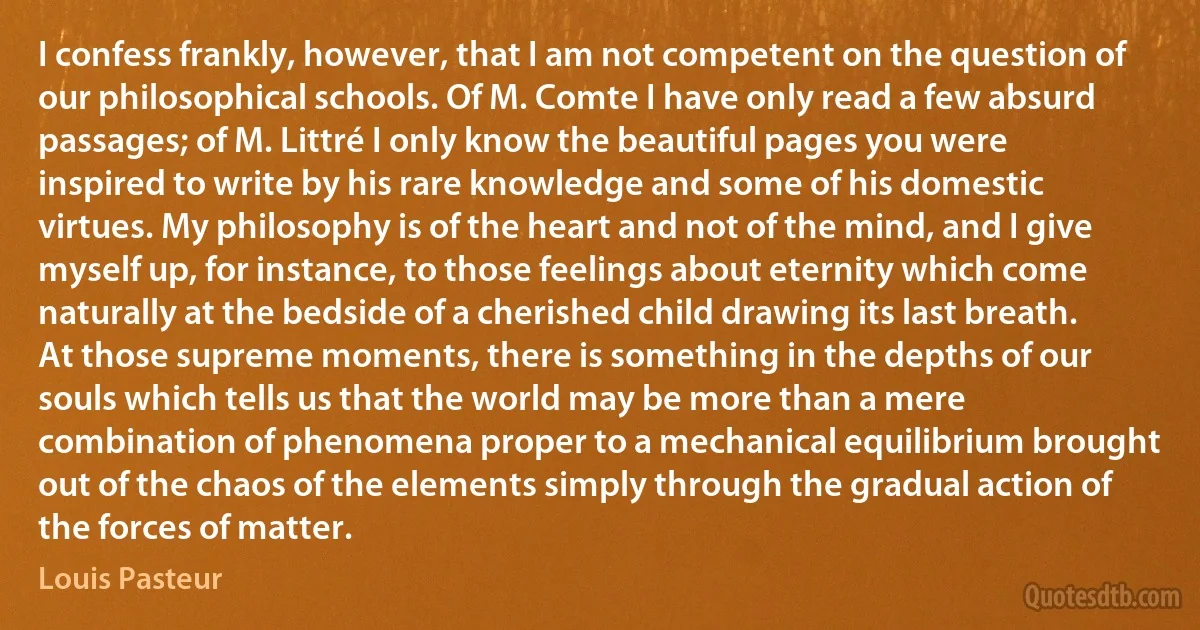Gradual Quotes - page 9
After the preliminary shock [of the collapse of the stock market], the nations will meet together to discuss the means of coping with the future in ordered fashion. Those who have stood most emphatically behind the rule of market forces will find themselves outvoted in the dispensation which will pertain, and those advocating co-operation will gain the ascendancy. This will not happen overnight. The process will be gradual, but will not be long delayed.

Benjamin Creme
It seems obvious that a true realization of the implications of reincarnation (and not simply an intellectual acceptance) will transform the whole Western approach to reality. The idea that life is not short, brutish and arbitrary; that there is purpose and plan; that we are undergoing a process of gradual perfectionment; above all that the great Law of Cause and Effect governs our existence, must change our viewpoint. The need for right human relationships, for harmlessness, will become abundantly clear.

Benjamin Creme
Part One... discusses at length the opposing ways of approaching and dealing with life: co-operating or competing. It traces the competitive spirit back to the animal kingdom and shows its gradual replacement by co-operation as humanity advances. Many of the problems of the modern world are seen in this context and co-operation is shown as the way, in line with our soul's intent, to solve them.

Benjamin Creme
I am not referring to the absolute, infinite concept of peace and good will of which some fantasies and fanatics dream. I do not deny the value of hopes and dreams but we merely invite discouragement and incredulity by making that our only and immediate goal. Let us focus instead on a more practical, more attainable peace - based not on a sudden revolution in human nature but on a gradual evolution in human institutions - on a series of concrete actions and effective agreements which are in the interest of all concerned.

John F. Kennedy
The question is: How do we reduce spending from 25% of GDP, which is where Obama put us? The focus is on total government spending. Can we bring it down, in a reasonable and politically acceptable way? That's what the Paul Ryan plan does. It puts us on a gradual reform path to reducing the size of government.

Grover Norquist
Since the general civilization of mankind, I believe there are more instances of the abridgment of the freedom of the people by gradual and silent encroachments of those in power, than by violent and sudden usurpations; but, on a candid examination of history, we shall find that turbulence, violence, and abuse of power, by the majority trampling on the rights of the minority, have produced factions and commotions, which, in republics, have, more frequently than any other cause, produced despotism. If we go over the whole history of ancient and modern republics, we shall find their destruction to have generally resulted from those causes.

James Madison
I will now confess my own utopia. I devoutly believe in the reign of peace and in the gradual advent of some sort of socialistic equilibrium. The fatalistic view of the war function is to me nonsense, for I know that war-making is due to definite motives and subject to prudential checks and reasonable criticisms, just like any other form of enterprise. And when whole nations are the armies, and the science of destruction vies in intellectual refinement with the science of production, I see that war becomes absurd and impossible from its own monstrosity. Extravagant ambitions will have to be replaced by reasonable claims, and nations must make common cause against them.

William James
It will be necessary to explain the spirit of the method of arranging the observed astronomical objects under consideration in such a manner, that one shall assist us to understand the nature and construction of the other. This end I propose to obtain by assorting them into as many classes as will be required to produce the most gradual affinity... and it will be found that those contained in one article, are so closely allied to those in the next, that there is perhaps not so much difference between them... as there would be in an annual description of the human figure were it given from the birth of a child till he comes to be a man in his prime.

William Herschel
Our instinct has outrun our theory in this matter; for while we still insist upon free will and sin, we make allowance for individuals who have gone wrong, on the very ground of provocation, of temptation, of bad education, of infirm character. By and by philosophy will follow, and so at last we may hope for a true theory of morals. It is curious to watch, in the history of religious beliefs, the gradual elimination of this monster of moral evil. The first state of mankind is the unreflecting state. The nature is undeveloped, looking neither before nor after; it acts on the impulse of the moment, and is troubled with no weary retrospect, nor with any notions of a remote future which present conduct can affect; and knowing neither good nor evil, better or worse, it does simply what it desires, and is happy in it. It is the state analogous to the early childhood of each of us, and is represented in the common theory of Paradise - the state of innocence.

James Anthony Froude
The concept of evolution as proceeding through the gradual transformation of masses of individuals by the accumulation of impalpable changes is one that the study of genetics shows immediately to be false. Once for all, that burden so gratuitously undertaken in ignorance of generic physiology by the evolutionists of the last century may be cast into oblivion. For the facts of heredity and variation unite to prove that genetic variation is a phenomenon of individuals.

William Bateson
These horrible affairs in France are the offspring of fanaticism. Yes, sir; if the reformation had taken place there, as well as here, religion and the clergy would have been respected, as they are here. Fanatics make atheists. If I cannot believe in God without believing that a wafer is God, my reason abjures the deity. I wish religion to exist: it is of infinite use to society, and I therefore wish it to be as rational as possible. A synod of the English church might order several objectionable tenets and expressions of our worship to be altered. I love those reformations that prevent revolutions, by keeping pace with the gradual progress of reason and knowledge.

Horace Walpole
The process of changing your mind is a tricky one. You start at Position A, which you hold with stern stubbornness, resolving never to give it up. Then you start to question your original resolution. Is it wise to be so stubborn? Perhaps you should consider alternate ideas. You revise your original inflexibility a little, abandoning Position A and adopting Position B, which is very much like it in most ways, with only a few ifs and maybes added. Then, by a gradual series of compromises, private deals, and shifts of purpose, you slide spinelessly through the alphabet until you arrive at Position Z, the total opposite of your original point of view.

Robert Silverberg
When the Church says that, in the dogmas of religion, reason is totally incompetent and blind, and its use to be reprehended, this really attests the fact that these dogmas are allegorical in their nature, and are not to be judged by the standard which reason, taking all things sensu proprio, can alone apply. Now the absurdities of a dogma are just the mark and sign of what is allegorical and mythical in it. In the case under consideration, however, the absurdities spring from the fact that two such heterogeneous doctrines as those of the Old and New Testaments had to be combined. The great allegory was of gradual growth. Suggested by external and adventitious circumstances, it was developed by the interpretation put upon them, an interpretation in quiet touch with certain deep-lying truths only half realised. The allegory was finally completed by Augustine, who penetrated deepest into its meaning, and so was able to conceive it as a systematic whole and supply its defects.

Arthur Schopenhauer
The first cause cannot have been an intelligence, let alone an intelligence that answers prayers and enjoys being worshiped. Intelligent, creative, complex, statistically improbable things come late into the universe, as the product of evolution or some other process of gradual escalation from simple beginnings. They come late into the universe and therefore cannot be responsible for designing it.

Richard Dawkins
Is our race but the initial of the grand crowning type? Are there yet to be species superior to us in organization, purer in feeling, more powerful in device and act, and who shall take a rule over us! There is in this nothing improbable on other grounds. The present race, rude and impulsive as it is, is perhaps the best adapted to the present state of things in the world; but the external world goes through slow and gradual changes, which may leave it in time a much serener field of existence. There may then be occasion for a nobler type of humanity, which shall complete the zoological circle on this planet, and realize some of the dreams of the purest spirits of the present race.

Robert Chambers (publisher born 1802)
Until a man's earthly life finishes its course, up to the very departure of the soul from the body, the struggle between sin and righteousness continues within him. However, high a spiritual and moral state one might achieve, a gradual or even headlong and deep fall into the abyss of sin is always possible. Therefore, communion of the holy Body and Blood of Christ, which strengthens our contact with Him and refreshes us with the living streams of the grace of the Holy Spirit flowing through the Body of the Church, is necessary for everyone.

John of Shanghai and San Francisco
Christian Apocalyptic offers us no such hope. It does not even foretell, (which would be more tolerable to our habits of thought) a gradual decay. It foretells a sudden, violent end imposed from without; an extinguisher popped onto the candle, a brick flung at the gramophone, a curtain rung down on the play - "Halt!"

C. S. Lewis



